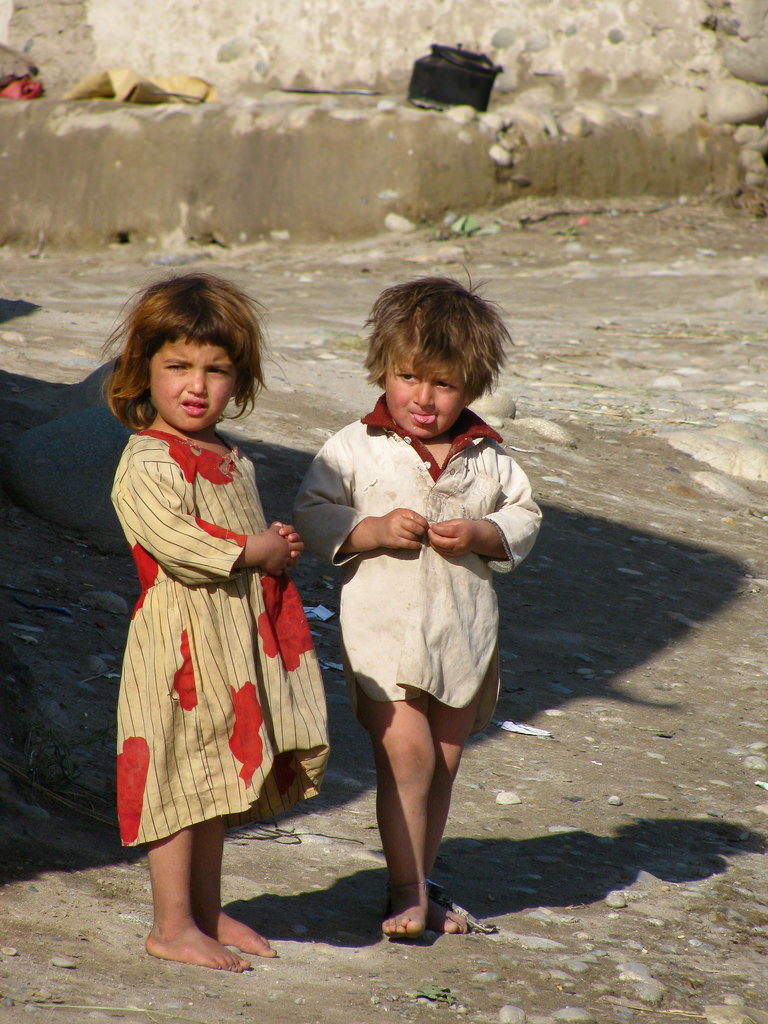 A bare and rocky hillside in Afghanistan’s remote northeast is possibly the last place you would expect to see a thriving forest of fruit trees. But thanks to the support of the global charity Concern Worldwide and the efforts of a dedicated community, this is exactly what you’ll find in Kozur, a small village in the Rustaq district, close to the Tajikistan border. Read on to learn more about the unique project that is helping transform the lives of thousands of rural Afghans.
A bare and rocky hillside in Afghanistan’s remote northeast is possibly the last place you would expect to see a thriving forest of fruit trees. But thanks to the support of the global charity Concern Worldwide and the efforts of a dedicated community, this is exactly what you’ll find in Kozur, a small village in the Rustaq district, close to the Tajikistan border. Read on to learn more about the unique project that is helping transform the lives of thousands of rural Afghans.
The challenge
The environment in which Kozur village is situated is harsh and hostile. The village sits in a flood plain and has repeatedly suffered losses of homes, land, and animals to frequent flash floods. Heavy snowfall is frequently a problem in the winter, as is lack of rainfall in the summer; when these environmental conditions are combined with the naturally poor soil fertility in the region, the result is an environment that makes it very difficult to grow good crops or raise healthy livestock. In addition, Kozur, like many other communities in the Rustaq district, was decimated by the 1998 earthquake that claimed the lives of more than 4,500 people.
As a result of all these factors, a cycle of poverty has taken hold in Kozur and has proved very difficult to break. The life of Hakim, a 60-year-old local volunteer with Concern Worldwide (whose name has been changed for security purposes), reveals the struggles that many Kozur villagers have had to contend with: with a wife and four children to support, Hakim spent many years working away from home, often as a laborer in the Darqad district’s rice fields, where he was paid in rice or sometimes cash. Although he has land in Kozur, he did not have enough income or agricultural knowledge to grow anything other than onions and potatoes. Often, he and his family would have to choose between selling the produce or eating it: they would go hungry if they sold the produce, but if they ate it, they would not have the money for firewood and other basic staples to survive the winter.
According to Hakim, what made all the difference to him and his family was the strong sense of community spirit in Kozur. During lean periods, neighbors would help each other as best they could with gifts of food or cash, particularly when there were families with children to be supported. And it is precisely these community values of generosity and cooperation that are now helping transform Kozur’s fortunes through Concern Worldwide’s SMILE project.
The project

Image courtesy Todd Huffman | Flickr
Funded by the European Union and implemented by Concern Worldwide and community volunteers like Hakim, the SMILE project—Sustainable Management for Improved Livelihoods and Environment—is aligned with some of Concern’s top priorities, including reducing poverty by increasing access to food and improving livelihoods by providing individuals and communities with the tools and training they need to change their own lives.
The main focus of the SMILE project has been the creation and maintenance of a community forest of almond, apricot, pistachio, and mulberry trees. Like Hakim, many villagers did not previously know how to utilize their land to get the most value from it; Concern’s solution was to provide the village with the training and tools needed to grow and market higher-value crops. To launch the SMILE project, Concern provided technical guidance, training sessions, saplings, alfalfa seeds, and cement, and constructed a number of check dams to protect the newly planted forest (later in the project, the Concern team also installed an extra reservoir to improve irrigation).
In their turn, the villagers prepared the land, planted the saplings, and excavated and helped build the reservoir and water pipelines. On an ongoing basis, they maintain the forest through regular pruning and inspections for disease and pests. Volunteers like Hakim, who have completed additional training in forest management techniques, act as stewards and keepers of the forest.
The outcomes
The Kozur community forest is a true community project in the best sense of the term. Everyone in the village works together to pick and prepare the produce during harvest time, and all profits from the forest go straight back to the community (rather than to individuals) for improvement projects like water systems and pumps. Alongside these community benefits, villagers are able to use the new skills and tools they have acquired through the project to enhance their own personal livelihoods. Hakim, for example, has transformed his former plots of onions and potatoes into a fruit tree nursery that provides him with saplings that he can sell at the market: the money he makes has allowed him to build a house and provide for his family’s educational and medical needs. And just as his neighbors helped him when times were difficult, Hakim now helps his neighbors by providing them with fruit tree cuttings, donating saplings to local schools and mosques, and conducting community training sessions.
